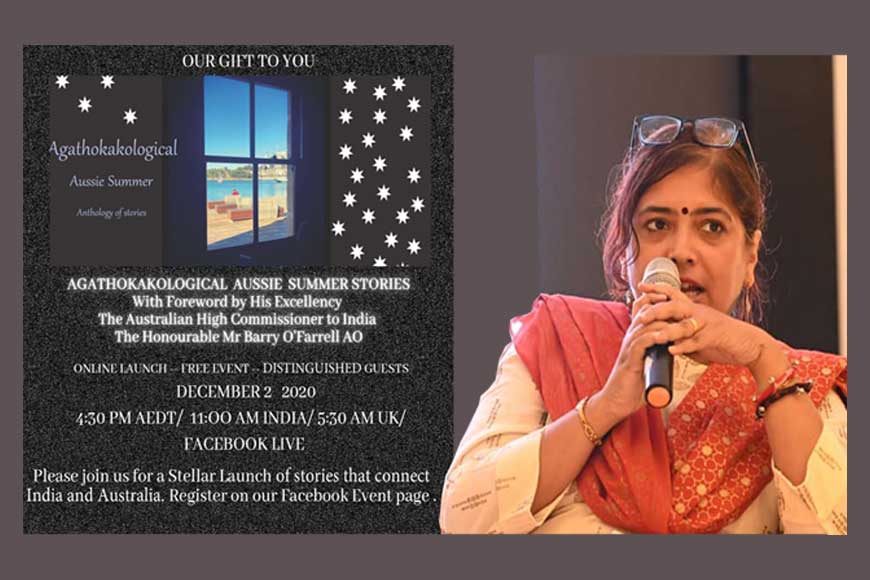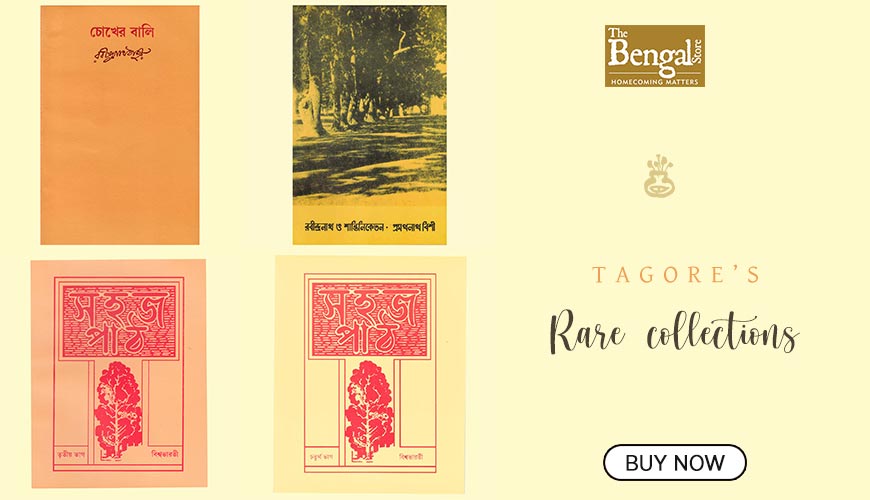New book of short stories boosts Bengal-Australia ties

The tongue twister of a word, ‘agathokakological’, may require some practise to get its pronunciation right. Its meaning is quite simple, however – it literally means, composed of both good and evil. Probably coined by the 19th-century British poet Robert Southey, it is derived from the Greek roots agath (good), kako (a variant of cac, meaning bad), and logical (the adjectival suffix based on logos, meaning word).
Introduction done, we can now move on to the story. This winter (summer in the southern hemisphere), on December 2 to be precise, will witness the release of ‘The Agathokakological Aussie Summer’, a unique anthology of short stories designed to bring Australia and India closer during the COVID-19 pandemic. And the only writer to have been chosen from South Asia is internationally published author, poet, entrepreneur, and our Long time associate and content partner Saheli Mitra.
The book will be released tomorrow, December 02, 2020, by Australian High Commissioner to India, Hon’ble Barry O’Farrell AO, and introduced by Indian Consul General in Sydney, Manish Gupta.
The stories in the anthology alternate between Australian shores and Indian cities, with particular focus on the Bengali diaspora and their experiences. The book will be released tomorrow, December 02, 2020, by Australian High Commissioner to India, Hon’ble Barry O’Farrell AO, and introduced by Indian Consul General in Sydney, Manish Gupta.
The anthology features stories by well-known authors from different parts of the globe. Saheli, whose works include the internationally launched ‘Lost Words’ and ‘People Called Kolkata’ (which she co-authored and which was published by Penguin), has contributed a story titled ‘Unborn’, tracing the deep love and passion between a Bengali man in Australia and a woman who lives in Kolkata, sending a strong message of how love can conquer everything, perhaps even the anxieties of a pandemic, or the death of an unborn child.
Saheli, whose works include the internationally launched ‘Lost Words’ and ‘People Called Kolkata’ (which she co-authored and which was published by Penguin), has contributed a story titled ‘Unborn’, tracing the deep love and passion between a Bengali man in Australia and a woman who lives in Kolkata, sending a strong message of how love can conquer everything, perhaps even the anxieties of a pandemic, or the death of an unborn child.
Edited by Dr Sharon Rundle of the Institute of Professional Editors (IPEd), Australia and Chair of the prestigious UTS Writers’ Alumni, and facilitated by Indranil Halder, a passionate Bengali entrepreneur and fashion expert based in Australia, the anthology is also a documentation of the literary influence of Bengal, Down Under. Indeed, many of the contributors are Bengalis living in different parts of Australia.
Not that this influence is recent. In fact, Bengalis have had contact with Australia for hundreds of years. In 1797, a shipwreck at Ninety Mile Beach in Victoria compelled five British and 12 Bengali seamen to swim ashore. Bengalis thus made history by beginning a robust trading relationship between Bengal and new Australian colonies, which were nourished by Bengal rum and livestock!
The recent discovery of a 19th-century Bengali book in the gold mining town of Broken Hill in New South Wales confirmed the fact that Bengalis have long lived in Australia, a fact that was perhaps forgotten until now. As researcher Samia Khatun explains in ‘The Australianama: The South Asian Odyssey in Australia’, how a book from Kolkata’s Chitpur Road offered companionship to Bengali settlers in Australia during the first phase of colonial settlements. Samia stumbled upon this book of Bengali poetry, mistaken as the Koran, in a 19th-century mosque in the gold-mining town of Broken Hill, New South Wales.
The recent discovery of a 19th-century Bengali book in the gold mining town of Broken Hill in New South Wales confirmed the fact that Bengalis have long lived in Australia, a fact that was perhaps forgotten until now.
The Indian connection to Australia was reinforced by ex-Consul General Amit Dasgupta as he said goodbye to Sydney at the NSW Parliament House Jubilee Room. His book, ‘The House and Other Stories’, embraced Bengalis in Sydney with the line, “They were also members of the Durga Pujo committee and in charge of the most important department, food, because it is only food, festivals and football that unite Bengalis!”
Again, Sydney-based architectural historian, author, and photographer Joanne Taylor’s thesis ‘The Great Houses of Kolkata 1750-2006’ celebrates the “strange, hybrid mansions” of North Kolkata in her book ‘The Forgotten Palaces of Calcutta’. Fellow Sydney resident Avijit Sarkar’s book ‘A Turn of Events’ is a collection of 14 short stories highlighting the world of Indian migrants to Australia. In 2001, late South African-Australian novelist Arthur Bryce Courtenay named a fictional character in his book ‘Four Fires’ as Karpurika Raychaudhuri, while Neil Grant’s ‘The Honeyman and the Hunter’ focuses on life in the Sundarbans.
Similarly, it is expected that ‘The Agathokakological Aussie Summer’ will strengthen the bond between Australia and India, particularly Bengal.











